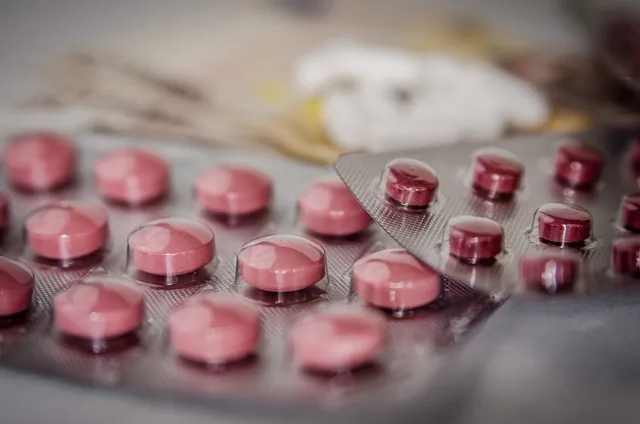Pneumonia is a common respiratory infection that affects the lungs and can cause significant discomfort and health complications.
If you or a loved one has been diagnosed with pneumonia, you may be wondering how long it will last and what factors can influence the recovery time.
In this comprehensive guide, we will explore the duration of pneumonia, the severity of the infection, and various factors that can impact the recovery process.
Understanding the Duration of Pneumonia
The duration of pneumonia can vary depending on several factors, including the type of pneumonia, the severity of the infection, the age of the individual, and their overall health condition.
In general, mild to moderate cases of pneumonia can last anywhere from two to three weeks with proper treatment.
However, severe cases may require a longer recovery period, sometimes lasting up to two months or even more.
It’s important to note that while the symptoms of pneumonia may subside within a few weeks, it can take several additional weeks or months before an individual feels fully back to normal.
Fatigue and tiredness are common aftereffects of pneumonia, and it’s not uncommon for individuals to experience these symptoms for a month or more after the other symptoms have cleared.
Recovery Times by Severity of Pneumonia
The severity of pneumonia can significantly impact the recovery time.
Pneumonia can be classified as mild, moderate, or severe based on the symptoms and the overall health of the individual.
Mild Pneumonia – Mild pneumonia is diagnosed in people under 65 who are conscious, have normal vital signs, and do not require hospitalization.
In these cases, treatment with antibiotics is typically administered at home.
With timely treatment, individuals with mild pneumonia can often feel better and return to their regular activities within a couple of weeks.
Moderate Pneumonia – Moderate pneumonia is diagnosed when there are signs of drowsiness, low blood pressure, worsening shortness of breath, and other risk factors such as older age or underlying diseases.
Treatment for moderate pneumonia often requires hospitalization, where intravenous antibiotics may be administered.
The recovery time for moderate pneumonia can vary, but it typically takes around two to three weeks for symptoms to subside.
Severe Pneumonia – Severe pneumonia is diagnosed when there is a risk of organ failure or when the lungs are unable to take in enough oxygen.
Intensive care unit (ICU) treatment is necessary for severe pneumonia cases.
Recovery from severe pneumonia, especially in older adults, may take up to 60 days or more.
It can take several months for individuals to fully regain their strength and resume their normal activities.
Factors Influencing Pneumonia Recovery Time
While the severity of pneumonia plays a crucial role in determining the recovery time, there are several other factors that can influence how long it takes to fully recover from the infection.
These factors include age, the type of pneumonia, and the individual’s general health.
Age – Age is an important factor in pneumonia recovery.
Older adults, especially those over the age of 65, are at a higher risk of developing severe symptoms, complications, and experiencing a longer recovery period.
The immune system weakens with age, making it harder to fight off infections like pneumonia.
Therefore, recovery times tend to be longer in this age group, particularly if hospitalization is required.
Conversely, young children, especially those under six months, have immature immune systems and are more likely to be hospitalized if diagnosed with pneumonia.
The hospitalization period for children with pneumonia can vary but typically lasts around four days.
Type of Pneumonia – The infectious cause of pneumonia can also impact the recovery time.
The most common causes of pneumonia are respiratory viruses, such as the human rhinovirus and influenza virus.
In most cases, pneumonia caused by these viruses resolves within a couple of weeks with proper rest and symptomatic treatment.
Bacterial pneumonia, on the other hand, can be treated with antibiotics and tends to resolve within a few weeks.
The most common bacterial cause of pneumonia is Streptococcus pneumoniae.
However, some types of pneumonia, such as fungal pneumonia, may take longer to resolve, especially in individuals with compromised immune systems.
Antifungal drugs may be necessary for up to 12 months in these cases.
General Health – The general health of an individual before contracting pneumonia can significantly impact the recovery time.
Underlying health conditions, such as asthma, chronic kidney disease, chronic obstructive pulmonary disease (COPD), liver disease, and sickle cell disease, not only increase the risk of pneumonia but also prolong the recovery process.
Individuals with these chronic diseases may experience more severe symptoms and a longer recovery period.
Functional status, which refers to an individual’s strength and ability to perform daily tasks, can also influence pneumonia recovery.
Those with a high functional status tend to recover faster than those with a low functional status.
Additionally, smoking cigarettes independently increases the risk of complications and mortality associated with pneumonia, making it harder for individuals to recover.
Supporting Recovery from Pneumonia
While the duration of pneumonia and recovery time can vary, there are several steps individuals can take to support their recovery and promote healing. These include:
Resting at Home – It is essential to rest until the fever breaks and coughing subsides.
This not only helps speed up the recovery process but also prevents the spread of the infection to others.
Maintaining a Healthy Diet – Proper nutrition is crucial for recovery.
Focus on consuming a balanced diet that includes lean proteins, whole grains, fruits, vegetables, and healthy fats.
Adequate hydration is also essential for supporting the immune system.
Staying Hydrated – Drinking plenty of fluids helps loosen secretions and promotes productive coughing.
Adequate hydration also supports the immune response and aids in recovery.
Completing Medications – If prescribed antibiotics, it is important to take the full course of medication, even if symptoms start to improve.
Failing to complete the prescribed course can lead to a relapse and increase the risk of antibiotic resistance.
Avoiding Smoking – Smoking, including secondhand smoke, can worsen pneumonia symptoms and hinder the recovery process.
It is important to avoid smoking during the recovery period.
Engaging in Light Physical Activity – Once the acute symptoms have subsided, engaging in light physical activity can help regain strength and improve recovery.
However, it is essential to pace oneself and not overexert, as it can delay the healing process.
Complications and Relapse
While most cases of pneumonia resolve without complications, it is important to be aware of potential risks.
If pneumonia is left untreated or not treated correctly, it can lead to severe complications and increase the chances of relapse.
Some possible complications include:
Pleurisy – Inflammation of the membrane covering the lungs and chest cavity, which can lead to the accumulation of fluid.
Acute Respiratory Distress Syndrome (ARDS) – A severe condition in which fluid accumulates in the lungs, making it difficult to breathe and obtain sufficient oxygen.
Necrotizing pneumonia – A complication characterized by tissue death, pitting, and the formation of abscesses in the lungs.
Organ Damage – Pneumonia can potentially damage the kidneys, liver, or heart, leading to long-term health complications.
Sepsis – A life-threatening immune reaction to an infection that has spread from the lungs into the bloodstream.
To prevent complications and reduce the risk of relapse, it is important to seek medical attention promptly if pneumonia symptoms persist or worsen.
Following the prescribed treatment plan and attending follow-up appointments is crucial for monitoring recovery progress.
Follow-Up Care and Recovery Monitoring
After recovering from pneumonia, it is important to schedule follow-up care with your healthcare provider.
They may recommend a chest X-ray to ensure that there are no underlying conditions or complications.
It may take several weeks for the X-ray to show normal results after completing the prescribed antibiotics.
In some cases, pulmonary rehabilitation may be suggested to help improve breathing capacity and lung function.
Physical therapy may also be beneficial to regain strength and restore mobility.
These interventions can aid in the recovery process and support long-term lung health.
Conclusion
In conclusion, the duration of pneumonia can vary depending on several factors, including the severity of the infection, the type of pneumonia, the individual’s age, and their overall health.
While mild to moderate cases of pneumonia typically resolve within two to three weeks with proper treatment, severe cases may require a longer recovery period.
It is important to follow the prescribed treatment plan, get adequate rest, maintain a healthy diet, and avoid smoking to support recovery.
If you or a loved one is experiencing symptoms of pneumonia, it is crucial to seek medical attention promptly.
Early diagnosis and appropriate treatment can help prevent complications and promote a faster recovery.
Remember to consult with your healthcare provider for personalized advice and guidance throughout the recovery process.






